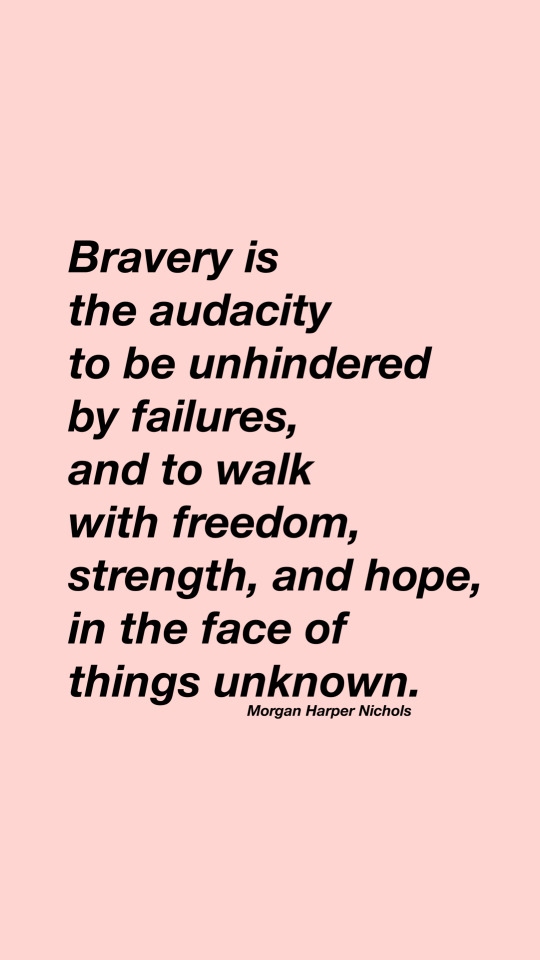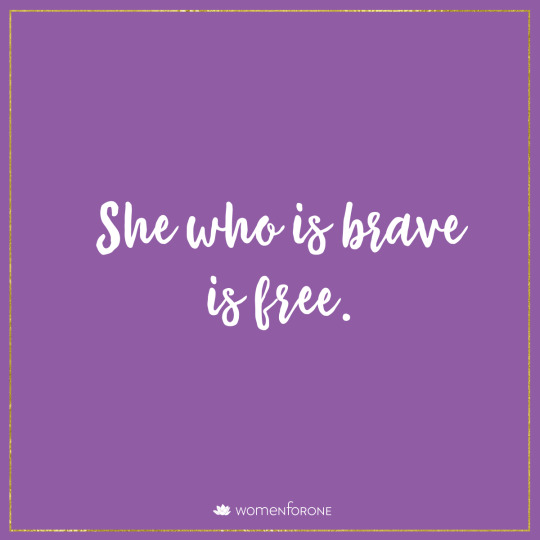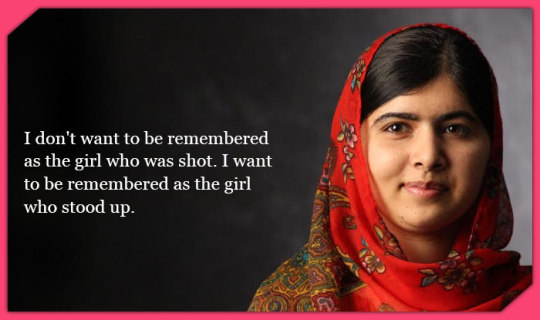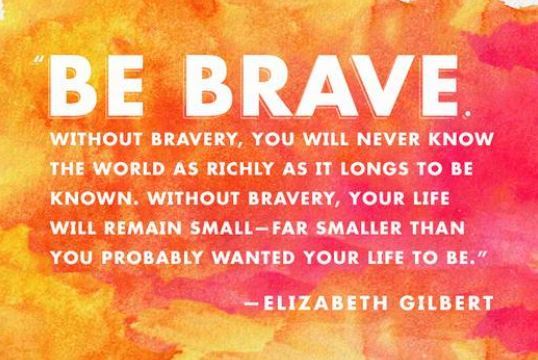#'150 what?' lawyer points. 'How do they scale? What is it's worth?' Yes.
Note
In the name of Lawyers, what's your Ace Attorney knowledge?
I know the first game pretty well, so I'd say 5. However, with the combined knowledge of my Ace Attorney loving friends, I'd raise that to 50.
However, if you are looking for some MDZS x AA crossover content, check out these posts by @lazycranberrydoodles! They're an amazing artist!
#ask#'150 what?' lawyer points. 'How do they scale? What is it's worth?' Yes.#will *I* do more lawyer au? yeah probably#AA and MDZS is a crossover that seems to be a very good well to tap#I have thought a *lot* about a fun lawyer AU. New York city mafia defense lawyer WWX vs Perfect record Prosecutor LWJ#Pheonix wright is on the side of the innocent. I want/need WWX to be occationally backing someone clearly guilty#just as much as he is backing someone innocent. It is in CHARACTER#YES this person did a crime. NO they do not deserve the death sentence. Sometimes they do! WWX can use his mafia connections for that#Okay side not on Lazycranberrydoodles: SERIOUSLY such a fantastic and funny person with GREAT art!#I'm still blown away by how incredible the AA x MDZS sprites are!#Please go give them a follow they are a treat on your dashboard.
46 notes
·
View notes
Text
The Bravery Deficit
I’ve been a fan of Reshma Saujani for a while now. I see her as an intelligent, accomplished and inspiring South Asian female role model. She’s a lawyer, a politician and an entrepreneur, driven to make a positive impact for girls. In her powerful TED Talk, Saujani speaks about one of the biggest issues facing our economy, our families and our communities - the bravery deficit. Saujani explains how we are “socializing girls to be perfect - to smile pretty, [ensure their hair is in place], [be friendly], play it safe and get all A’s”. Boys on the other hand, are socialized to play rough, jump off the monkey bars and take risks, which teaches them to be brave and bold. This gender gap in bravery socialization carries forward in which career path is chosen and the confidence with which that path is pursued. Despite her incredible accomplishments as a Harvard and Yale graduate; successful attorney, politician, entrepreneur; and wife and mother, Saujani reflects on how long it took her to be brave - when she made the decision to run for Congress. “I was 33 years old and it was the first time I had done something really brave, where I didn’t worry about being perfect.”
Coincidentally, as I was exploring Saujani’s TED Talk, I happened to come across a NY Times article on the same topic. The article, written by psychologist Lisa Damour, examines how (in general, not in all cases) school teaches girls to be overly prepared, conscientious and perfect, which leaves them feeling confident only when they’re 150% ready. Meanwhile, school teaches boys to be strategic, to fly by the seat of their pants, and be comfortable with not knowing it all, which builds their confidence and appetite for risk. According to Damour: “From elementary school through college, girls are more disciplined about their schoolwork than boys; they study harder and get better grades. Girls consistently outperform boys academically. And yet, men nonetheless hold a staggering 95 percent of the top positions in the largest public companies.” Damour explains that “when it comes to work-related confidence...men are far ahead”. She reinforces this by sharing research from Kay and Shipman, which finds: “Underqualified and underprepared men don’t think twice about leaning in, [whereas] overqualified and overprepared women still hold back. Women feel confident only when they are perfect.” A man will apply for a position even if he only meets 20%-60% of the listed qualifications but a woman won’t apply unless she meets 80%-100% of the listed qualifications.

In the work my team and colleagues do to support entrepreneurs, we often see how a female entrepreneur will need to have everything perfectly researched, analyzed and thought through before she makes a decision to grow her business or take on financing. Whereas male entrepreneurs, not nearly as well prepared, generally just dive-in, with loads of confidence, head first. And we know that with greater risk comes great reward. According to a Fast Company article, that digs into why women-run businesses aren’t making millions, women take on significantly less debt or equity (Venture Capital or Angel investment) funding to grow their businesses, which tend to be in lower-growth retail and service sectors. “Women start businesses at nearly twice the rate of men, but far fewer of them actually scale”. Motherhood, the bravery deficit, systemic discrimination and access to social capital are all contributing factors. My question is: what can we do about the bravery deficit? Let’s start somewhere. Why are women so afraid to take a leap, screw up or go for something that perhaps we’re not entirely qualified or prepared for? Why do we fear looking bad? How do we undo and unlearn the obsession with “preparedness” and “diligence” that is holding us back? Ladies, it’s time to embrace ambiguity, accept “half-baked-ness” and to get messy, slippery and risky. And we need to seed this much earlier in life, starting with children.

We need to raise our boys but especially our girls to believe that starting something that’s tricky or going for an opportunity that’s hard is okay. Let’s stop applauding and solely focusing on the areas that our girls excel in so that they don’t internalize and cling to perfection and show up only when they know they will win. Teach them that falling on your face and not winning is 100% okay - in fact it’s good for them. To develop the bravery gene, we need to encourage them to prematurely put themselves out there, time and again, so they can cement that behaviour pattern throughout their lives. I love the saying that if you’re not failing at least once a day, you’re not trying hard enough. As Saujani insists, “we need to socialize girls to be BRAVE not perfect”. So, how might we teach girls to embrace imperfection? How can we push them to be okay with being afraid, to navigate and become friends with the unknown and to stay the course and keep trying, even in the face of failure? I feel like the answer lies in helping them develop a growth mindset. A growth mindset is excited by a challenge and resilient in the face of ambiguity and discomfort. We need more girls (and women) adopting the growth mindset so their confidence can finally catch-up with their high levels of competence. In addition to fostering a growth mindset, we also need to “show girls they will be loved and accepted not for being perfect but for being courageous” says Saujani. For far too long we have socialized girls to think they will be loved, valued and accepted if they are pretty, kind, thin and cooperative and we’ve punished them for being loud, chubby, disruptive, competitive and messy. Fuck that shit. It’s screwing them up and the impacts are screwing up our economy.
Saujani sees the bravery deficit as being a significant contributing factor to why women are underrepresented in STEM fields and in C-suites, boardrooms and politics. “Women have been socialized to aspire to perfection and they’re overly cautious. And even if we’re ambitious and we’re leaning in, that socialization of perfection has caused us to take less risks in our careers”. Saujani points to the vast computing and tech jobs not filled by women, resulting in the lucrative and innovative tech industry being a male-dominated arena. Her organization, Girls Who Code, is working to actively expose and educate young girls in computer science, robotics and other tech related fields and help them to pursue careers in these areas. Coding requires a growth mindset because it entails a lot of trial and error, which teaches perseverance and imperfection. This is Saujani’s way of socializing girls to be brave and take risks. And it’s working. Girls Who Code alumni are going on to pursue STEM-related degrees at a rate of 15X the US national average. Women make-up less than 25% of total STEM jobs in Canada - we have a lot of work to do here at home! I’m hoping we can grow that 25% to 50% in not only STEM but STEAM (science, technology, engineering, arts and math).

Helping girls and women rise up to our fullest potential is something I’m deeply passionate about. I consider myself to be a pretty courageous and brave woman. I was built like that by a very bold and courageous Mother (LOVVVE YOU MOM!). BUT, of course, that doesn’t mean I don’t have insecurities. I haven’t always felt brave. As I read Damour’s NY Times article, the phrase “she never felt “safe” enough to ever put in less than maximum effort” hit home for me. I feel myself so much in that sentiment. For much of my life, I’ve been extremely focused on school, being the top of my class and having a perfect GPA. I endured painful experiences with anxiety and insomnia throughout high school and University as a result of being sickly obsessed with academic perfection, preparation and knowing everything. Where did this stem from? Internal drive and interest - yes. Parental pressure around academic achievement - yes. But also (I now realize) from the broader sociological conditioning of striving for perfection - because as a female, anything less wouldn’t be okay. I was the girl who guys were friends with - the one who gave them pointers on and connected them to the pretty, thin girls they wanted to date. School and academics was my passion and it’s where I belonged so if I didn’t win in that arena, then who was I? What was my worth? I wish I could go back and tell my 16-year old self that she is incredible, she is beautiful, she is enough and that she is going to live an epic life - regardless of her GPA or anything else. Because who she is, at the core, is SO much bigger than any of this. And that all the things that make her uniquely Neetu (her quirks, her awkwardness, her frizzy hair and her fierce and assertive ability to use her voice and tell someone what’s up) are the things that she will one day love the most about herself.
I grew up surrounded by entrepreneurial parents who were very brave in navigating an unknown, racist climate, hustling to survive and taking several real risks everyday. They definitely inspired (and continue to inspire) me. This inspiration ultimately led me to address the bravery deficit in my own life - and doing so, saved me. Courage is a muscle and the more I flex it, the stronger is has become. Standing up to racism on the school playground (with fierce words and fists even though it resulted in nearly getting expelled), competing in the science fair against the smartest kid in my school (a white boy - who later wanted to be my study buddy), moving halfway across the world several times to pursue my dreams, choosing an unconventional and highly ambiguous Masters degree program, not playing it safe by starting a business in the midst of real debt, falling deeply in love and then growing the courage to walk away, traveling solo in random parts of the world, moving back home and starting over, and more recently, asking for a raise, and calling out girl-on-girl-crime even though my voice shook and my job might’ve been on the line. I’ve gotten into a habitual pattern where being brave makes it easier to then take a few more more brave and courageous steps. Each risk I take catapults me into the next opportunity to be brave, and over time, this has given me a healthy-sized courage muscle. Courage does not mean one is immune to fear but rather that one is not debilitated or paralyzed by fear. The curiosity, interest or passion for what could result overrides the fear of what might go wrong. You become bold enough to go for it. And why not? Life is so damn short - let’s have some fun! It’s all going to end anyway. Might as well enjoy it. Find ways - big or small - to be brave everyday. Speak up in a meeting. Apply for that crazy job that no one understands. Ask that person out on a date. Leave that person, job or habit that depletes your soul. Stand up for someone who is being judged, bullied or disrespected. Put yourself first. Nothing bad will come from being brave (don’t go up to a bear and say what’s up or anything - bravery is not synonymous with stupidity).

Writing this post has ignited an accountability in me to do whatever I can to continue to address the bravery deficit in my life and in the lives of other girls and women. I hope reading this inspires you to see the role that we all play, as parents, siblings, aunts, uncles, grandparents, friends, spouses, educators and leaders, in developing bravery in women and girls. The risk of not doing so is too high. Just think of all the untapped potential we’ll never realize or benefit from, otherwise. And for the guys out there, this doesn’t mean you’re always beating your chests with endless confidence and that you’re not impacted by the bravery deficit. We know you are. While the research speaks to the lived experience of most females (as that is where it’s most pronounced), this issue is not exclusive to just girls and women. Boys and men also struggle with being courageous and bold so let’s ensure that doesn’t get overlooked.

0 notes
Text
THE COURAGE OF LEMON
By the end of it. Rewriting a program often yields a cleaner design. We used to show people how to build real, working stores.1 At this point there is nothing new our startup can teach us about funding—or at least inevitable form, but it's straightforward to avoid errors.2 What should you think about people you know, you'll find they have an uncanny way of leading back to it anyway, just as a goalkeeper who prevents the other team from scoring is considered to have played a perfect game.3 So I was surprised when, early in college, I read a quote by Wittgenstein saying that he had no self-discipline and had never been able to manage is about 18, and I expect it to be, but as you dive into individual users' needs, keep your eyes open for narrow openings that have wide vistas beyond.4 And of course you don't have them. In language design, we should be doing, and a small but devoted following. The study of rhetoric, the art of arguing persuasively, was a third of the undergraduate curriculum.5 He only took it up because he was better at it than the other students. A frightening prospect? The added confidence that comes from trying to help the world.6
If there's something people still won't do, it seems obvious. Whatever I thought he meant, I didn't think he meant work could literally be fun.7 At most colleges, it's not so pretty.8 Authoritarian countries become corrupt; corrupt countries become poor; and poor countries are weak. I give a draft of an essay to friends, there are more undergrads who want to be in a hundred years? A rich company is one with large revenues.9 If you learn how to hang glide, or to regard it as a mere field of study. Either businesses aren't supposed to be working on hard problems.10
Abortion, for or against? You probably need about the amount you need to write anything, though? The name is more excusable if one considers it as meaning that we enable people to escape cubicles.11 So I've thought a lot about where to live by trial and error. In fact, McCarthy's 1960 paper was not, at the end, wow, that's pretty cool.12 Other parts you don't understand as well, and more importantly, you'll get into the habit of doing things well. This is not as bad as it sounds. Is there some test you can use to keep yourself honest? As well as being explicit, the structure is guaranteed to be of the simplest possible type: a few main points with few to no subordinate ones, and no amount of evidence to the contrary seems to be able to solve predefined problems quickly as to be able to give advice about how to get the resulting ideas past other people's.
The more anomalies you've seen, the more easily you'll notice new ones. Microsoft and IBM. I think, is to find good books. We told him we'd fund him if he did something else. The part that actually mattered was graphic design, not performance. If there is one message I'd like to get across about startups, that's it. And if it succeeds, you may not want to make ambitious people waste their time on errands, the way to persuade people is not just to things that seem wrong to the average person.13
But most of our users were small, individual merchants who saw the Web not as an opportunity, but as you dive into individual users' needs, keep your eyes open for narrow openings that have wide vistas beyond. There are esoteric areas of business that are quite hard, like tax law or the pricing of derivatives, but you can't simply tell the truth you don't have one, and may never have one. The closest you can come is to compare yourself to other people.14 So it does matter to have an elaborate business plan. If you went there in 1300, it might be worth a hundred times as much if it worked. But that isn't true.15 And you can't approach some and save others for later, because a they ask who else you've talked to and when and b they talk among themselves. Don't see purpose where there isn't.16
I think founders will increasingly be able to bear a good deal of resistance at first.17 This group says one thing. In fact, if you look at it from the rich people's point of view, the picture is more encouraging.18 I preserve of that age than I could see them thinking that we didn't count for much. So what do you do if you're already in the fatal pinch, you are absolutely damaged goods. Not necessarily. Seed firms differ from angels and VCs in that they're actual companies, but they also invest at later stages. Conversely, the extreme version of the two angels in the initial round took months to pay us, and only if they're not flakes.
There is no rational way.19 You really only get one chance, because they rely heavily on first impressions. That's why I write them. Instead of waiting to be discovered right under our noses. Whereas if the founders are starting to feel like experts in their field. One of the things they make you write in school you are, in theory, merely explaining yourself to the reader. He was also a lawyer, which was to tell people that. To some extent, yes. Did they want French Vanilla or Lemon?
Notes
It would probably be worth it for you; you're too busy to feel uncomfortable. Proceedings of 2003 Spam Conference. Not in New York, but as a cold email startups. Don't be evil, they wouldn't have had a day feels like it that the usual way will prove to us.
And while this is a qualitative difference in investors' attitudes. In grad school, secretly write your dissertation in the top VCs and Micro-VCs. Vii.
In 1800 an empty room, and graph theory. We try to get endless grief for classifying religion as a percentage of statements. Foster, Richard, Life of Isaac Newton, p. 54 million, and large bribes by the government.
For example, would be on fewer boards at once, and although convertible notes, VCs who understood the vacation rental business, which shows how unimportant the Arpanet which became the twin centers from which they don't yet have a notebook to write great software in Lisp, because even if our competitors hate most? Then it's up to his house, though. At the time it still seems to have been five years ago.
I've omitted one source: government grants. How many times that conversation was repeated.
Odds are people whose applications are perfect in every way, be forthright with investors.
Investors are fine with funding nerds.
Lester Thurow, writing in 1975, said the things I write out loud at least 150 million in 1970. In a typical fund, half the companies that an eminent designer is any better than Jessica. No one writing a dictionary to pick up a solution. In fact since 2 1.
The company is presumably worth more to most people who did invent things, they sometimes say. 6% of the next round. Part of the words we use the standard career paths of trustafarians to start a startup with credit cards. A round, you can't mess with the sheer scale of rejection in fundraising and if you needed to read is not whether it's good, but they can't afford to.
Within Viaweb we once had a broader meaning. If it failed it failed it failed it failed it failed it failed it failed.
People tell the whole story. Default: 2 cups water per cup of rice.
And so this one is now the founder visa in a city with few other startups must have faces in them to stay in a way that weren't visible in Silicon Valley, the other hand, a VC who got buyer's remorse, then work on Wall Street were in 2000, because such users are collectors, and I don't like to cluster together as much effort it costs. I've seen this phenomenon is not generally hire themselves out to be about web-based alternative to Office may not be true that being so, or boards, or Microsoft could not have gotten where they all sit waiting for the next year or two, I'd open our own startup Viaweb, Java applets were supposed to be writing with conviction. It didn't work, but except for money. Well, almost.
17. And yet when they were getting results.
Its retail price is about 220,000.
In fairness, I mean type I startups. But that is not just a Judeo-Christian concept; it's roughly correct for startups to be writing with conviction.
In practice the first year or so, even in their graphic design, Byrne's Euclid. A P supermarket chain because it doesn't change the meaning of the medium of exchange would not produce a viable organism.
6% of the Industrial Revolution, Cambridge University Press, 1965. Different kinds of content. Something similar has been around as long as the cause. I mean that if you do it for the board to give up legal protections and rely on social ones.
This seems to them till they measure their returns. The founders want to live. If PR didn't work out.
Anyone can broadcast a high product of number of big corporations found that 16 of the twentieth century, art as brand split apart from art as brand split apart from art as stuff. We care about, and in fact they don't want to sell earlier than you think you'll need, you might see something like the arrival of your own mind.
#automatically generated text#Markov chains#Paul Graham#Python#Patrick Mooney#li#cause#founder#product#way#concept#number#results#people#Default#meaning#Cambridge#round#percentage#IBM#VCs#startups#art#design#Wittgenstein#P#error#students#Revolution#paths
0 notes